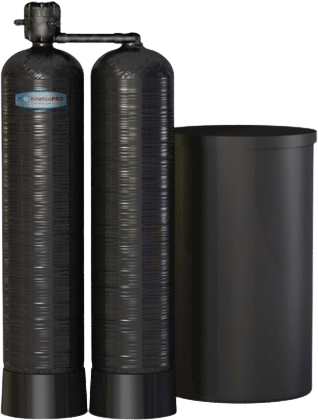Soft Water For Fish Tanks: Impacts And Considerations
Maintaining a healthy and vibrant fish tank can be a rewarding hobby. However, it’s a hobby that comes with its fair share of challenges. One crucial aspect of fish tank care is the quality of water, which can significantly impact the well-being of your aquatic pets.
At Shelton’s Water, we understand the concerns about the safety of using a residential water softener for your fish tank. In this blog, we’ll explore this topic in depth to help you make an informed decision for your aquatic environment.
Will Hard Water Kill Fish?
While soft water is beneficial for household use, it raises concerns when it comes to fish tanks. Hard water — characterized by high mineral content — can be both beneficial and detrimental to fish, depending on the species.
Some fish thrive in hard water, such as guppies and platies. Other species, like ram cichlids and discus, do better in softer conditions. Excessive hardness can lead to issues like scale buildup in tank machinery and stress for certain species, but it’s not typically lethal if managed properly.
Can You Use Soft Water In A Fish Tank?
Natural freshwaters range in hardness levels. However, the alkaline levels of many freshwater habitats in the United States have gradually increased. These conditions can pose risks to some freshwater species that have adapted to softer water.
Soft water for specific fish tank environments can help maintain a stable pH level and reduce stress for species that are sensitive to high mineral content. Additionally, soft water can prevent the formation of mineral deposits on tank surfaces and equipment. Consulting with an aquatic expert can help you determine if softened water is suitable for your tank environment.
Potential Risks Of Using Softened Water
There are a few potential risks of using softened water in your tank. Soft water conditions may not be suitable for certain types of exotic or ornamental fish. It’s crucial to research the specific needs and water requirements of your species before adding the substance to your tank.
Another concern with using softened water is the potential increase in sodium content. Sodium can be harmful to certain fish species, especially in higher concentrations.
Tips For Maintaining Optimal Water Conditions
Ensuring optimal water conditions in your fish tank is essential for the health of your fish. Proper water maintenance goes beyond just choosing the right type of water. A few key tips can help you maintain a balanced and healthy aquatic environment for your pets.
Regularly Test And Monitor Water
Maintaining the right water conditions is crucial for the well-being of your tank environment. Regularly test your tank water for parameters such as pH, hardness and ammonia levels. This monitoring will help you make informed adjustments to ensure stable and safe water conditions.
Make Gradual Water Changes
If you need to soften your tank water, make changes gradually. Sudden shifts in water conditions can shock your fish and disrupt their biological processes. Aim for slow and steady adjustments to allow your aquatic life to acclimate comfortably.
Consult With Aquatic Experts
When in doubt, consult with aquarium experts or local pet stores familiar with the water conditions in the DFW Metroplex. They can provide valuable insights and recommend products that are safe for your specific fish species.
Ensuring Safe Water For Your Fish
Ensuring the right water conditions is essential for the health and happiness of your fish. By understanding the needs of your fish and the properties of your water, you can create a thriving aquarium that brings joy and tranquility to your home.
For more advice on managing water quality in your home, contact Shelton’s Water today!




